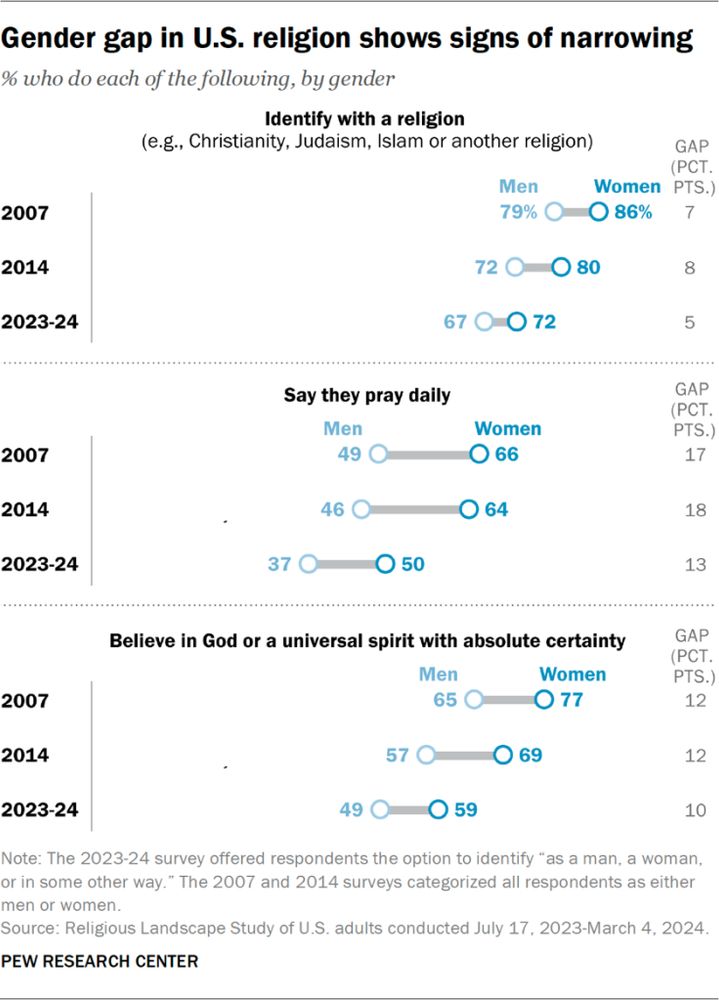22% in 2022
47% in 2025
No other demographic group has seen a bigger increase.

by Greg Smith
pewrsr.ch/46j5YDo

Reposted by: Greg Smith, Greg Linden
1. Were survey respondents selected randomly or was this an opt-in poll?
2. Could the results, especially for young adults, be driven by bogus respondents?
Keep this post in mind: www.pewresearch.org/short-reads/... 🧪

Reposted by: Greg Smith
From @pewresearch.org's 2023-24 Religious Landscape Study
Read more: pewrsr.ch/3EXnfrS

Reposted by: Greg Smith
www.pewresearch.org/short-reads/...

Reposted by: Greg Smith
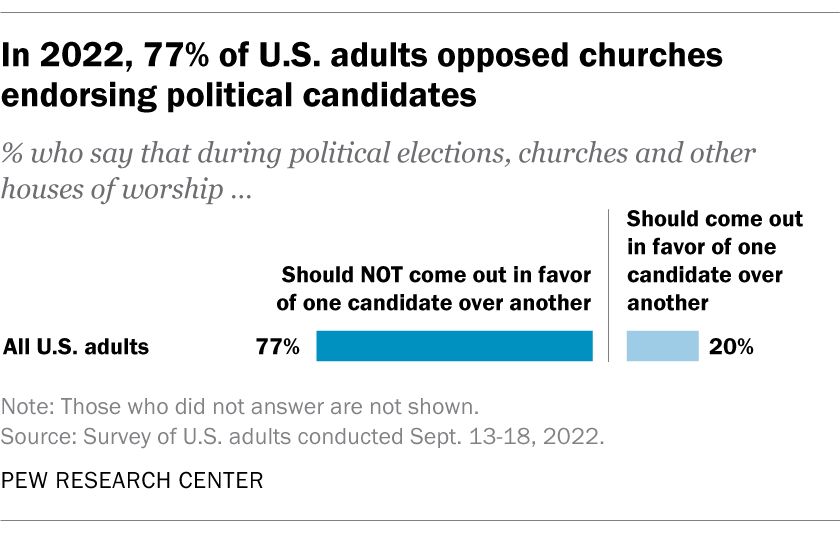
by Brian Schaffner — Reposted by: Greg Smith
sites.tufts.edu/cooperativee...
by Greg Smith
20% of U.S. adults are Catholic (religiously speaking)
9% are "cultural Catholics"
9% are former Catholics
9% are connected to Catholicism in other ways (through spouse, parent, etc.)
Much more: pewrsr.ch/4eaMtk2
Reposted by: Greg Smith
David Voas is skeptical. He explains that probability-based survey data doesn't point to a revival. Nor does data from Christian denominations.
theconversation.com/is-there-rea...
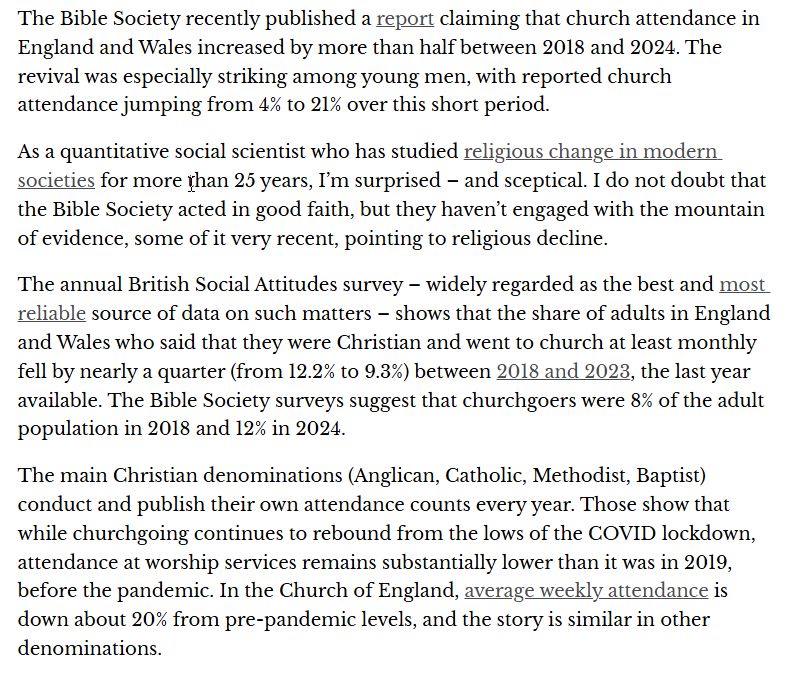
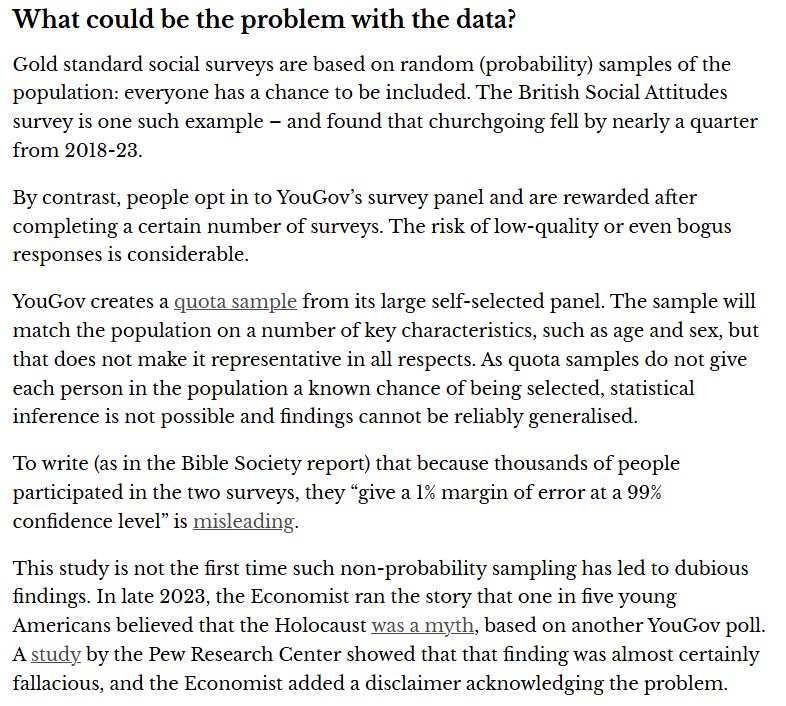
by Greg Smith
Reposted by: Greg Smith
Reposted by: Greg Smith, Martin Kreidl, Thomas A. Tweed
We just posted an ad for TWO research assistant positions on @pewresearch.org's religion team.
We expect a lot of applications so it's best to apply this week for full consideration.
Come work with our great team!
pewtrusts.wd5.myworkdayjobs.com/en-US/Center...


Reposted by: Greg Smith, Gayle Kaufman
▶️ Views of social acceptance for LGBTQ people
▶️ Personal experiences with acceptance, discrimination
▶️ Experiences with coming out
▶️ Identity
▶️ Community, friends and LGBTQ spaces
Read on for findings from each section.
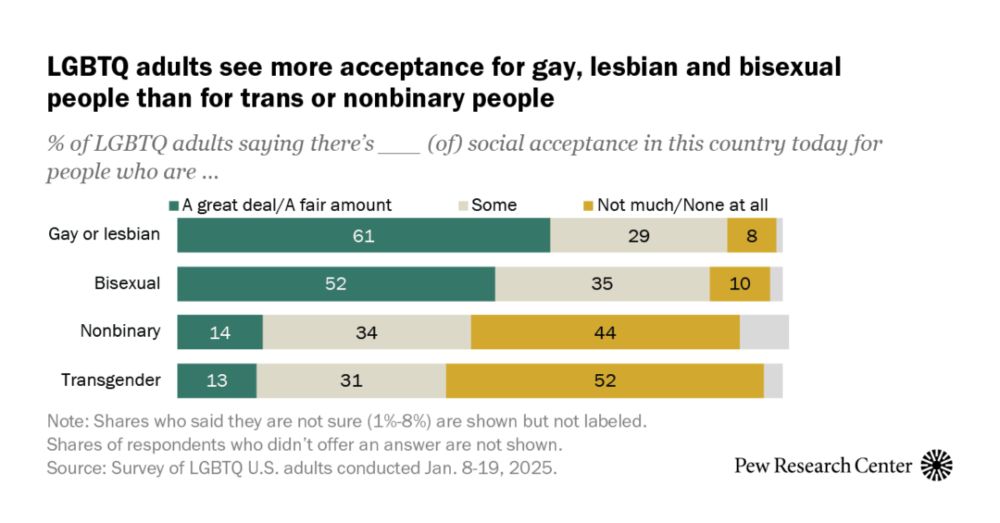
by Greg Smith
20% of U.S. adults are Catholic, a figure that's been stable for years.
A growing share are Latinos, and upwards of 4-in-10 Catholics are immigrants or the children of immigrants.
Much more from @pewresearch.org pewrsr.ch/3VRqirS
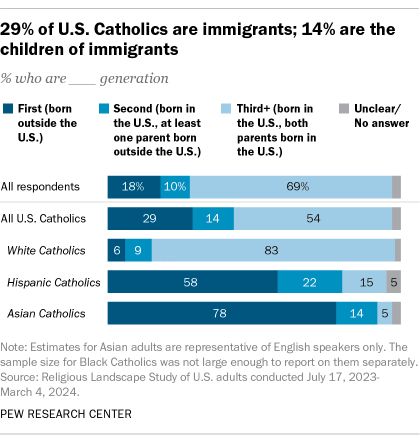
Reposted by: Greg Smith

by Greg Smith
60% of US Catholics say the Church should be more inclusive even if that means changing some teachings. 37% say Church should stick to traditional teachings even if gets smaller.
Big differences on this & other questions by Mass attendance.
Much more pewrsr.ch/44AA8mv
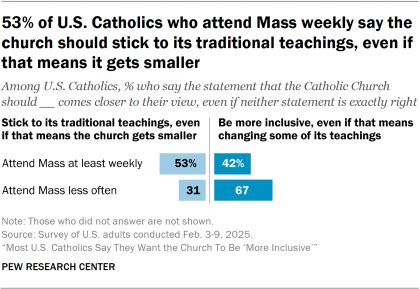
Reposted by: Greg Smith
Here's how White evangelicals and other major U.S. religious groups view the second Trump administration.
pewrsr.ch/42L6bNS
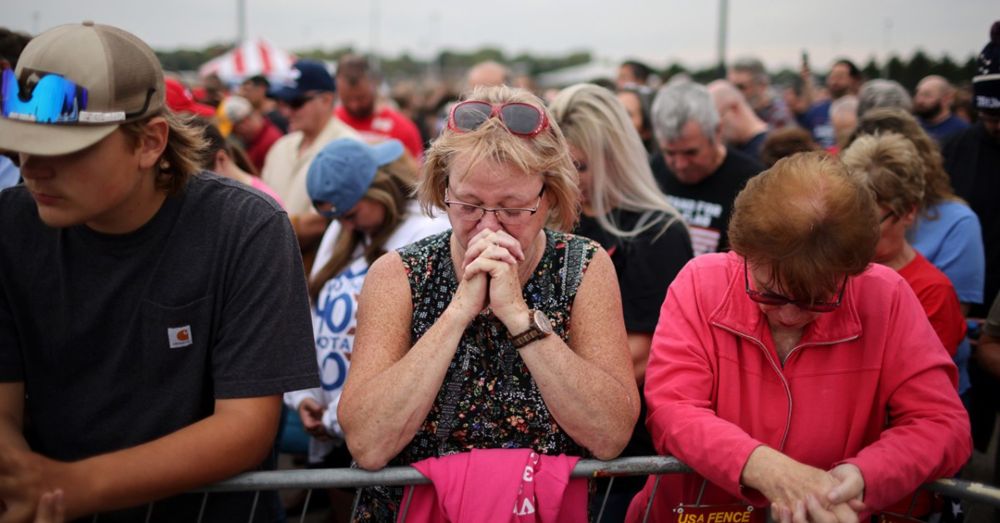
Reposted by: Greg Smith
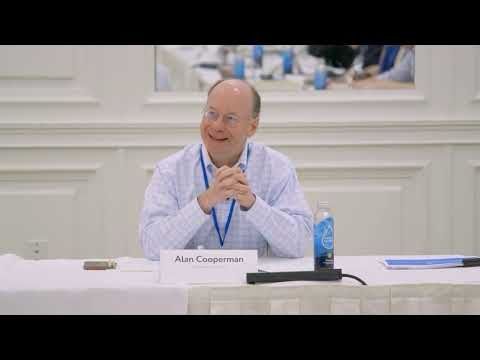
by Greg Smith
One interesting finding - more than four-in-ten U.S. Catholics are immigrants (29%) or the children of immigrants (14%).
Much more here: pewrsr.ch/3VRqirS
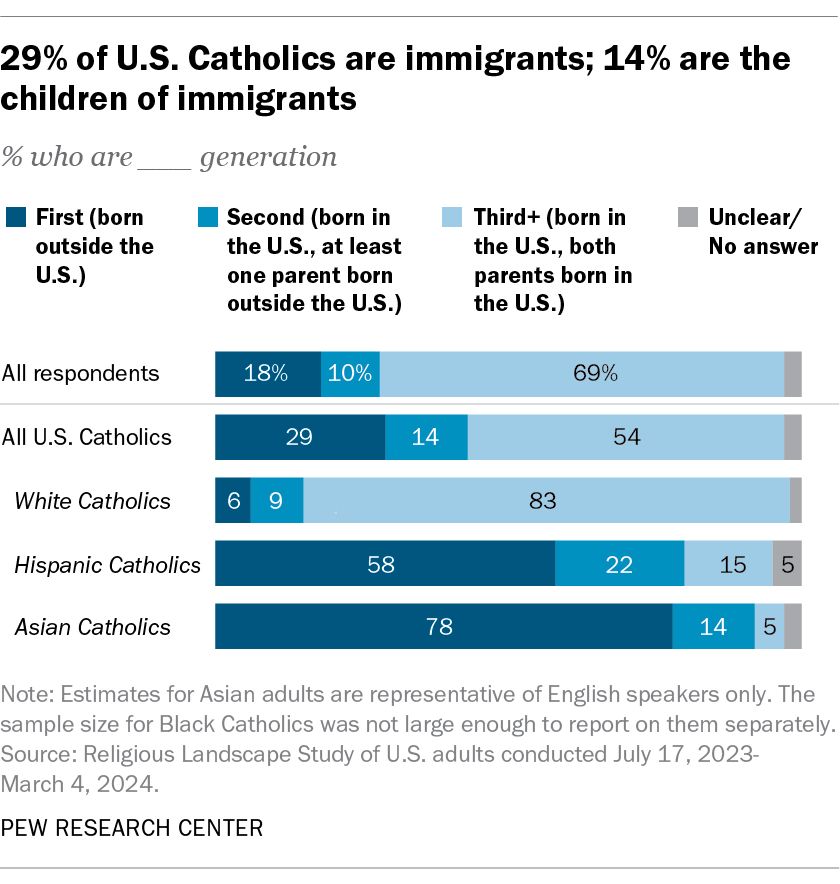
Reposted by: Greg Smith
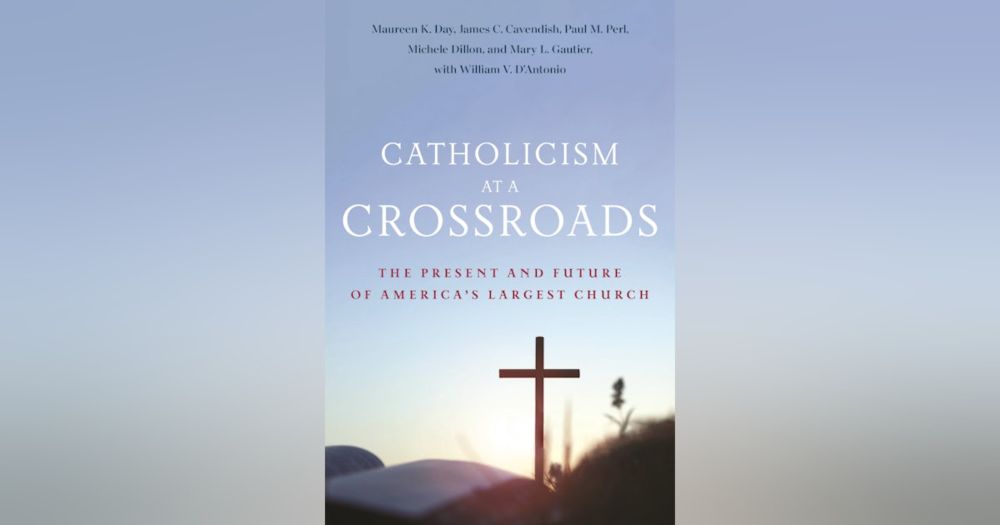
Reposted by: Greg Smith
Date: Apr. 22
Time: 11 am ET
Register uottawa-ca.zoom.us/meeting/regi...
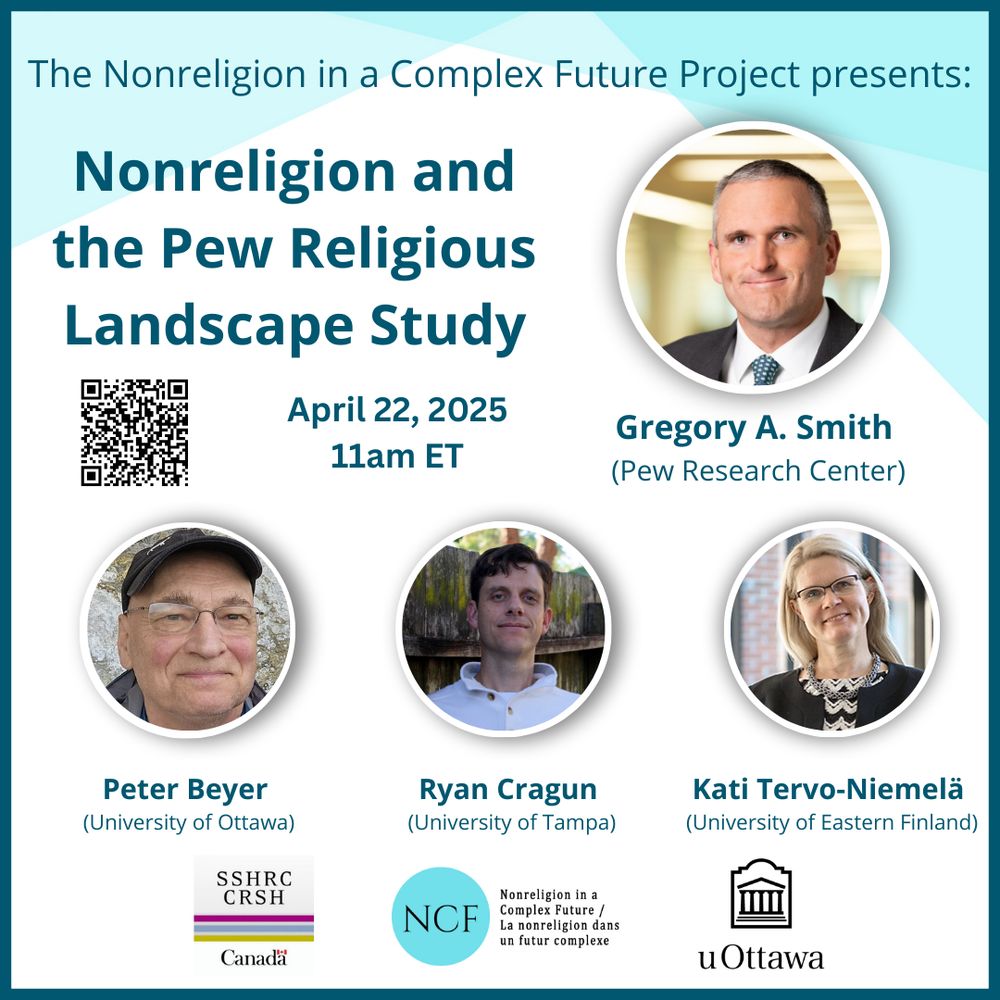
Reposted by: Greg Smith
This survey concentrates on public views about six developments related to AI applications and human enhancements.
Dive into the dataset at thearda.com/data-archive?fid=ATPW99.
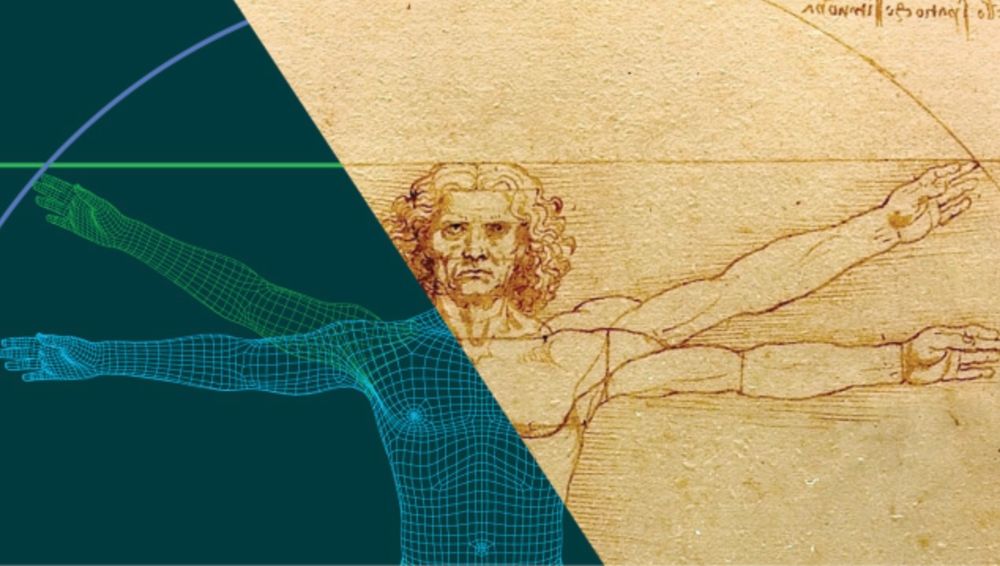
Reposted by: Greg Smith

Reposted by: Greg Smith

by Greg Smith
Just noting that the public use dataset from the 2023-24 RLS is available for download www.pewresearch.org/dataset/2023...
A "restricted" file with more granular religious and geographic variables is under review & will be available soon through ICPSR.
Reposted by: Greg Smith

by Mirya R. Holman — Reposted by: Greg Smith, Jared Rubin
wheatley.byu.edu/religionsemi...
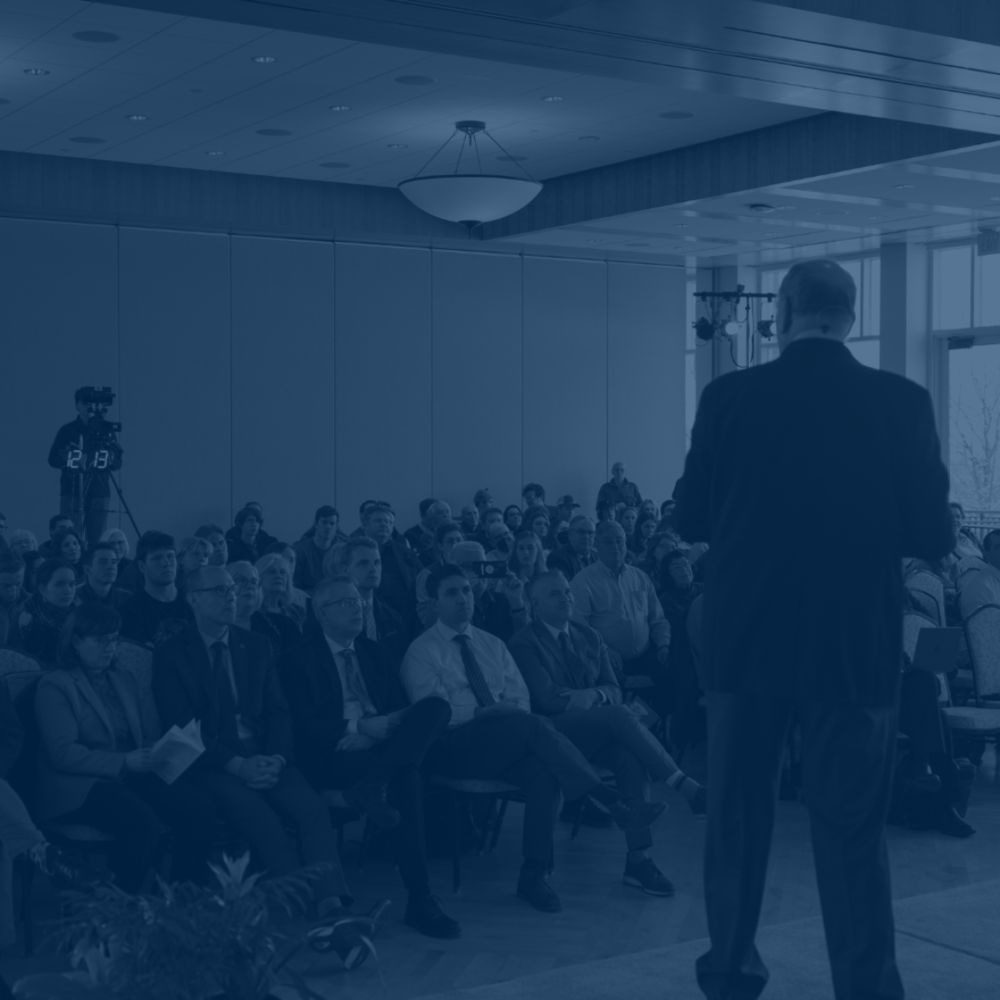
by Greg Smith
www.pewresearch.org/religious-la...
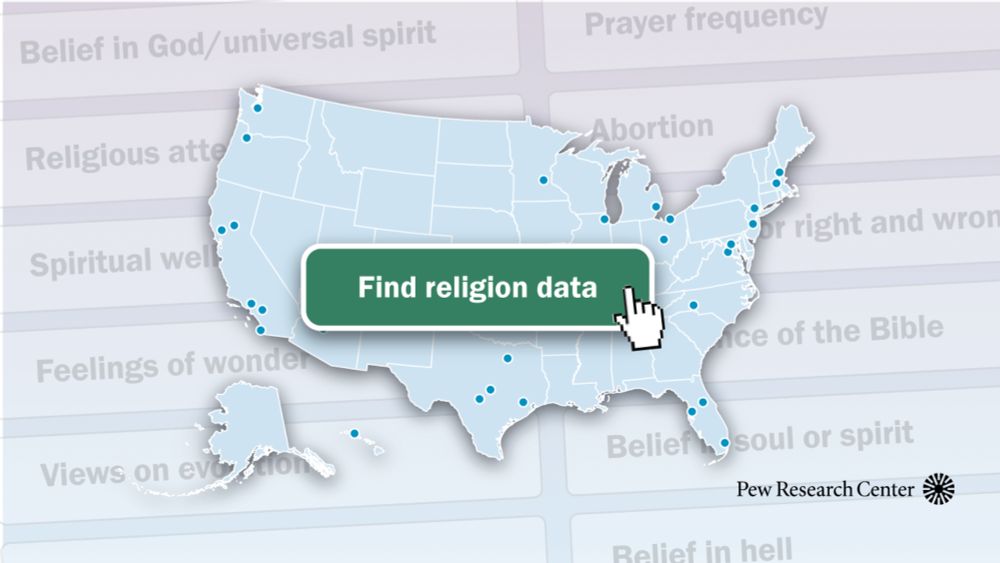
by Greg Smith
pewrsr.ch/3F4edcw
One interesting finding: about 4-in-10 U.S. Catholics are immigrants or the children of immigrants

by Greg Smith
pewrsr.ch/4inD0X8
